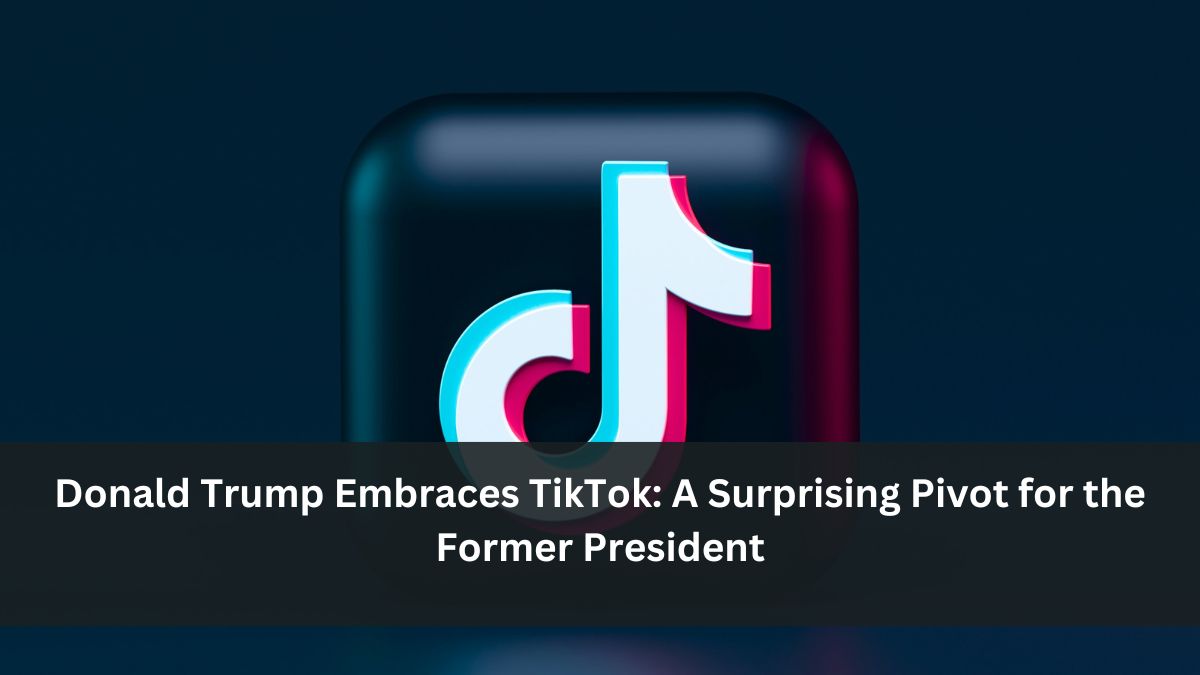Tech
Donald Trump Embraces TikTok: A Surprising Pivot for the Former President

A Controversial App Turned Campaign Tool
In a move that has raised eyebrows across the political spectrum, former President Donald Trump has joined TikTok, the viral video-sharing app he once attempted to ban during his presidency. This unexpected decision comes as Trump ramps up his 2024 campaign efforts, aiming to reach a younger demographic of potential voters on the platform with over 170 million users in the United States alone.
Trump’s foray into TikTok marks a stark contrast from his previous stance on the app, which he deemed a national security threat due to its Chinese ownership by ByteDance. In 2020, Trump issued executive orders aimed at prohibiting TikTok’s operations within the U.S., citing concerns over the potential for data collection and espionage by the Chinese government.
Yet, as the legal battles surrounding the proposed ban unfolded, Trump’s position appears to have shifted. In a recent interview with CNBC, he acknowledged the potential risks associated with TikTok but also voiced concerns about a ban benefiting Meta, the parent company of Facebook – a platform he considers an “enemy of the people.”
A Strategic Campaign Move or Political Pragmatism?
Trump’s embrace of TikTok has been met with both skepticism and applause from various quarters. While some view it as a calculated political maneuver to connect with younger voters, others perceive it as a pragmatic acknowledgment of the app’s immense popularity and influence.
“The campaign is playing on all fields,” said an adviser to Trump’s campaign, speaking on condition of anonymity. “Being able to do outreach on multiple platforms and outlets is important, and this is just one of many ways we’re going to reach out to voters. TikTok skews towards a younger audience.”
Indeed, the presence of both Trump’s campaign and that of President Joe Biden on TikTok underscores the platform’s perceived value as a messaging tool, regardless of the ongoing controversies surrounding its ownership and data privacy concerns.
A Divided Stance Within Trump’s Inner Circle
While Trump’s decision to join TikTok may resonate with some supporters, it has also sparked dissent within his inner circle. Steve Bannon, a former Trump campaign strategist and host of the “War Room” podcast, accused the former president of being influenced by billionaire investor Jeff Yass, who holds a 15% stake in ByteDance.
“Simple: Yass Coin,” Bannon wrote on social media, insinuating that Trump’s shifting position on TikTok may be motivated by financial interests rather than sound policy considerations.
However, Trump has refuted these claims, asserting that his meeting with Yass did not involve discussions about TikTok, further muddying the waters around his motivations for embracing the app.
A Battlefield for Political Influence
As the 2024 election cycle heats up, TikTok has emerged as a battleground for political influence, with both campaigns vying for dominance on the platform. According to a TikTok official who spoke on condition of anonymity, there is a two-to-one ratio of pro-Trump versus pro-Biden content on the app, as reported by Puck News.
This lopsided ratio may partially explain Trump’s decision to join TikTok, as his campaign seeks to capitalize on his existing support base and potentially sway undecided voters through carefully curated content tailored for the platform.
Moreover, Trump’s move could be seen as a strategic counterpunch to Biden’s early adoption of TikTok, with the former president aiming to level the playing field and neutralize any perceived advantage held by his political rival.
A Precarious Future for TikTok
While Trump’s presence on TikTok may boost the app’s visibility and potentially attract new users, the platform’s future in the United States remains precarious. In April, President Biden signed a law forcing ByteDance to divest from TikTok within a year or face a nationwide ban on U.S. app stores.
This looming threat has prompted TikTok to mount a vigorous legal defense, challenging the legislation in court and asserting its commitment to protecting user data and addressing national security concerns.
Amidst this uncertainty, Trump’s decision to join TikTok could be seen as a calculated risk – a bid to capitalize on the app’s current popularity while potentially positioning himself as a champion for its continued existence in the U.S. market, should his campaign prove successful.
A Surprising Pivot or Shrewd Political Maneuvering?
As the 2024 election cycle unfolds, Donald Trump’s embrace of TikTok will undoubtedly be a subject of intense scrutiny and debate. Is it a genuine pivot driven by a newfound appreciation for the platform’s reach and influence, or a carefully orchestrated political maneuver designed to appeal to younger voters and counterbalance his rivals’ presence on the app?
Regardless of the motivations, Trump’s decision to join TikTok has once again thrust the controversial app into the spotlight, reigniting conversations about data privacy, national security, and the delicate balance between political expediency and principled policymaking.
As the campaign trail heats up, voters will be watching closely to see how Trump’s TikTok strategy unfolds and whether it yields the desired results. In the ever-evolving landscape of political campaigning, one thing is certain: the battle for hearts and minds has taken on a new, bite-sized form, one that demands brevity, creativity, and a keen understanding of the digital zeitgeist.
